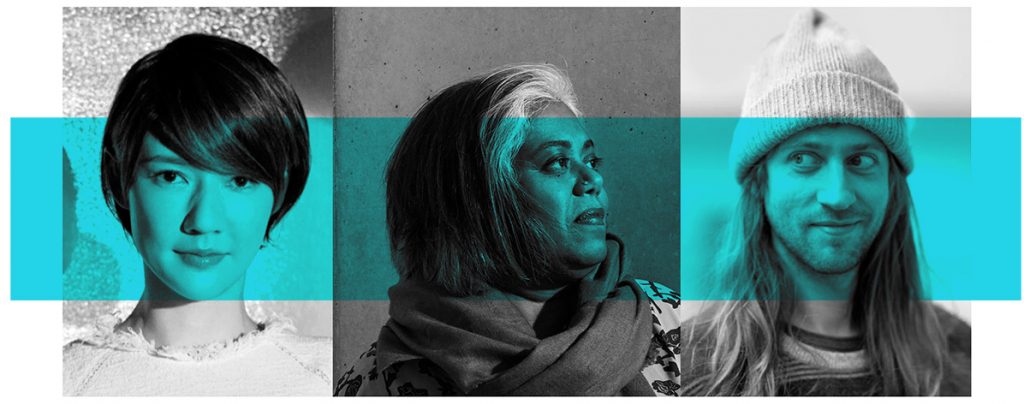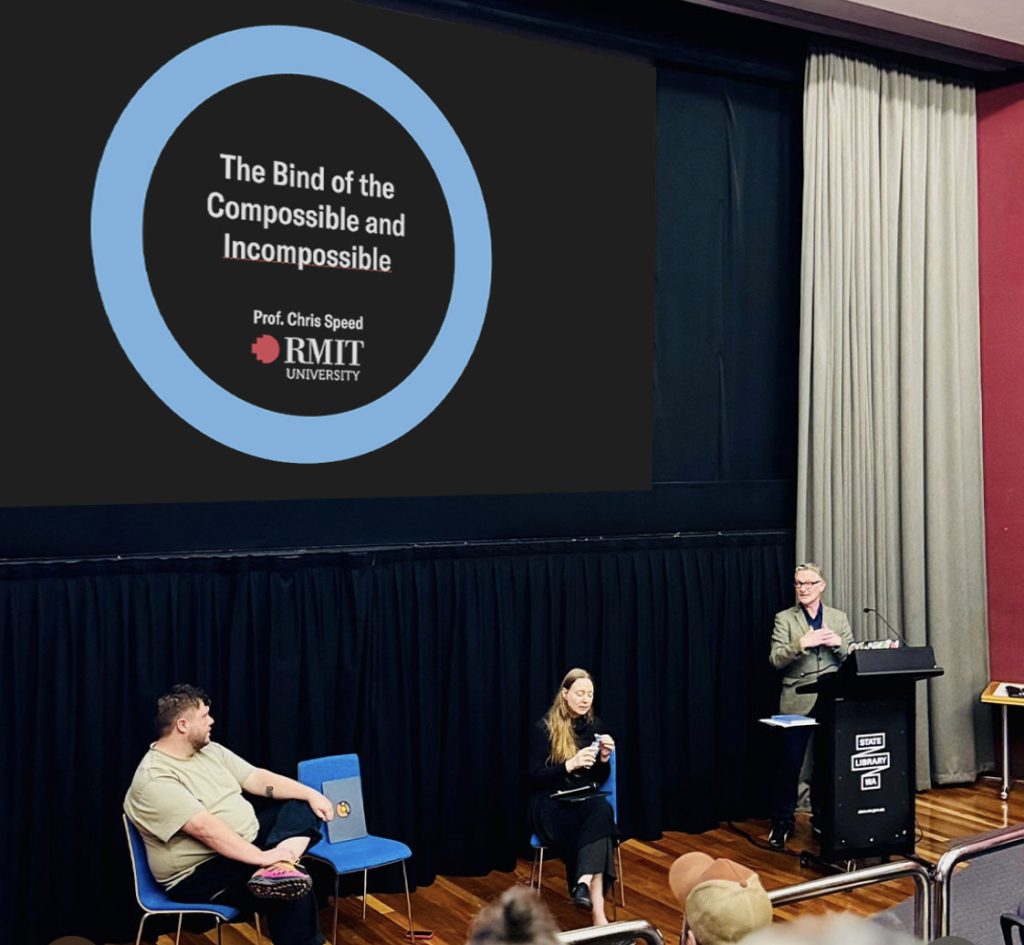Design Frequencies: Sharing International Practice in Design Research
Already deep into semester two here. Last semester School of Design RMIT College of Design and Social Context hosted three visiting speakers, and it’s taken some time to get the permissions sorted. But we’re good to share now!
We used the title for the short series: Design Frequencies: Sharing International Practice in Design Research. And perhaps a connection question might be: how do we bridge the gap between speculative imagination and material impact?

Rathna Ramanathan (Central Saint Martins) opened with a challenge to design education’s inherited biases, arguing for “regenerative” approaches that acknowledge the precariousness of immigrant perspectives. Her restructuring of CSM into the C, S, and M schools—Culture, Systems, and Material—deliberately abandons disciplinary names to enable new forms of transdisciplinary collaboration.
Hiro (Sputniko) Ozaki traced her journey from viral speculative design (the menstruation machine) to successful Femtech entrepreneur, raising the uncomfortable question: “Debate is not enough. Maybe we should start building.” Her startup Cradle now serves 900,000 employees across major Japanese corporations, turning what began as critical design into systematic corporate infrastructure for women’s health.
Joseph Lindley (Lancaster) offered the most reflexive take, questioning whether design research’s claims to unique epistemological status are sustainable. His fellowship project “Permission to Muck About” argues that the “night science” of intuitive, creative practice isn’t unique to design—it’s fundamental to all good research, from theoretical physics to biology.
All three speakers grappled with legitimacy—how to validate practice-based knowledge within institutions that remain structurally committed to disciplinary boundaries and “day science” methods. Ramanathan’s institutional restructuring, Sputniko’s entrepreneurial pivot, and Lindley’s epistemological critique represent three different strategies for the same problem: how to create space for the kind of exploratory, generalist practice that actually drives imagination.
Perhaps the real question isn’t whether design research deserves special status, but whether our entire academic and corporate infrastructure needs to better accommodate the kind of experimental, boundary-crossing work that complex contemporary challenges actually require.
hashtag#DesignResearch hashtag#SpeculativeDesign hashtag#DesignEducation Prof Andrea Siodmok OBE Sarah Teasley Dr Jonathan Duckworth
Related posts

“This communication is not for you.”
Looking to connect 2 recent events / conversations (as is my want) this time to explore a fundamenta

The Labour of the Rejected / “Walk the Plank”
Still playing catchup with so many events. A few weeks ago during hashtag#DIS2025, Mafalda Gamboa an

Design Contradictions
Two projects during Melbourne Design Week with collaborators Michael Dunbar and Liam Fennessy to exp

Paradox of Collaborative Speed
Two events in Melbourne over the past 10 days week revealed a tension across contemporary technology

Slow Materials, Slow Money: Can Design Decelerate?
Two events that I’m trying to tie together to glean some connections. The CHI panel on Regenerativ

From Food Networks to AI Governance
Back to reporting on events in Narme/Melbourne. From Food Networks to AI Governance: Reflections on

Planetary Pedagogies
Following the launch of PlanetaryCivics two weeks ago, this is the second extension to contributions

Space Debris to House Keys
Part 2 of catching up with the weeks of activity in Melbourne through February. From Space Debris to

Measuring our demise
Oh Melbourne, three parallel events that spanned the week: RMIT College of Design and Social Context